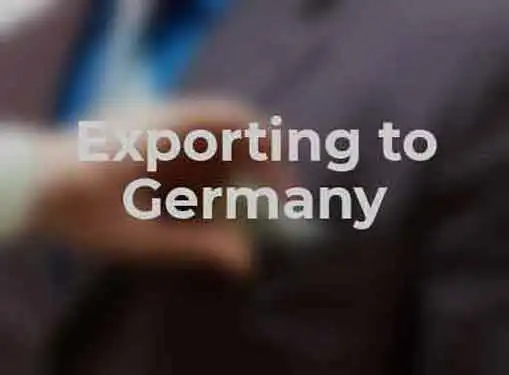Articles on Exporting
Exporting to Germany
The German economy is a pillar of the EU and an attractive market for U.S. exporters. Here are some tips to help your company do business in Deutschland.
Germany is the largest economy in Europe and the fourth largest economy in the world.

Surprisingly, Germany is also the world's second largest exporter; its exports comprise more than a third of the nation's total economic output.
Germany is a major importer of U.S. goods. In 2006, Germany imported goods valued at $40+ billion from the U.S., an increase of more than 55% from the imports reported just four years earlier. But despite Germany's robust economy and track record with U.S. exporters, its participation in the Economic Union (EU) and the global recession have made it more difficult for U.S. firms to introduce their products to German markets.
For example, the EU has severely restricted or excluded certain import commodities like beef, poultry, soybeans, pork, and rice for health and safety reasons. Since Germany is firmly entrenched in the EU, exporting these commodities to Germany is a long, uphill battle for U.S. exporters.
Other types of U.S. exports are less problematic and are greeted more eagerly by German importers. But like any other export market, the German market presents unique challenges and concerns that need to be addressed by Americans interested in doing business Germany.
- Leading exports. The kinds of products U.S. exporters ship to Germany run the gamut, but the leading exports are cars, pharmaceutical preparations, medicinal equipment, civilian aircraft engines, and computer accessories. The fastest growing exports to Germany come from the energy sector with fuel oil, natural gas liquids, and coal all in the top five trending exports.
- Trade policies. EU trade policies have a dramatic impact on German imports. Like all other EU nations, Germany is subject to uniform EU import and export regulations. Although these regulations are not difficult to navigate, the bigger concern for exporters are trade quotas between EU members because quotas may restrict the amount of imports from non-European Union nations.
- Import partners. Germany's largest trading partners are other EU member nations. To export goods to Germany, you'll need to develop your own German trade relationships. Customs brokers have the expertise and experience to navigate EU import regulations and expedite the process. Even though most products don't require an import license, customs brokers handle the kinds of details that frustrate exporters to Germany.
- Cultural traits. Germans are sticklers about details. They are extremely punctual and expect their trading partners to share their aversion to risks. Provide German trading partners with plenty of notice about meetings and deadlines, and avoid rushing them to make decisions.
Share this article
Additional Resources for Entrepreneurs



Conversation Board
We greatly appreciate any advice you can provide on this topic. Please contribute your insights on this topic so others can benefit.